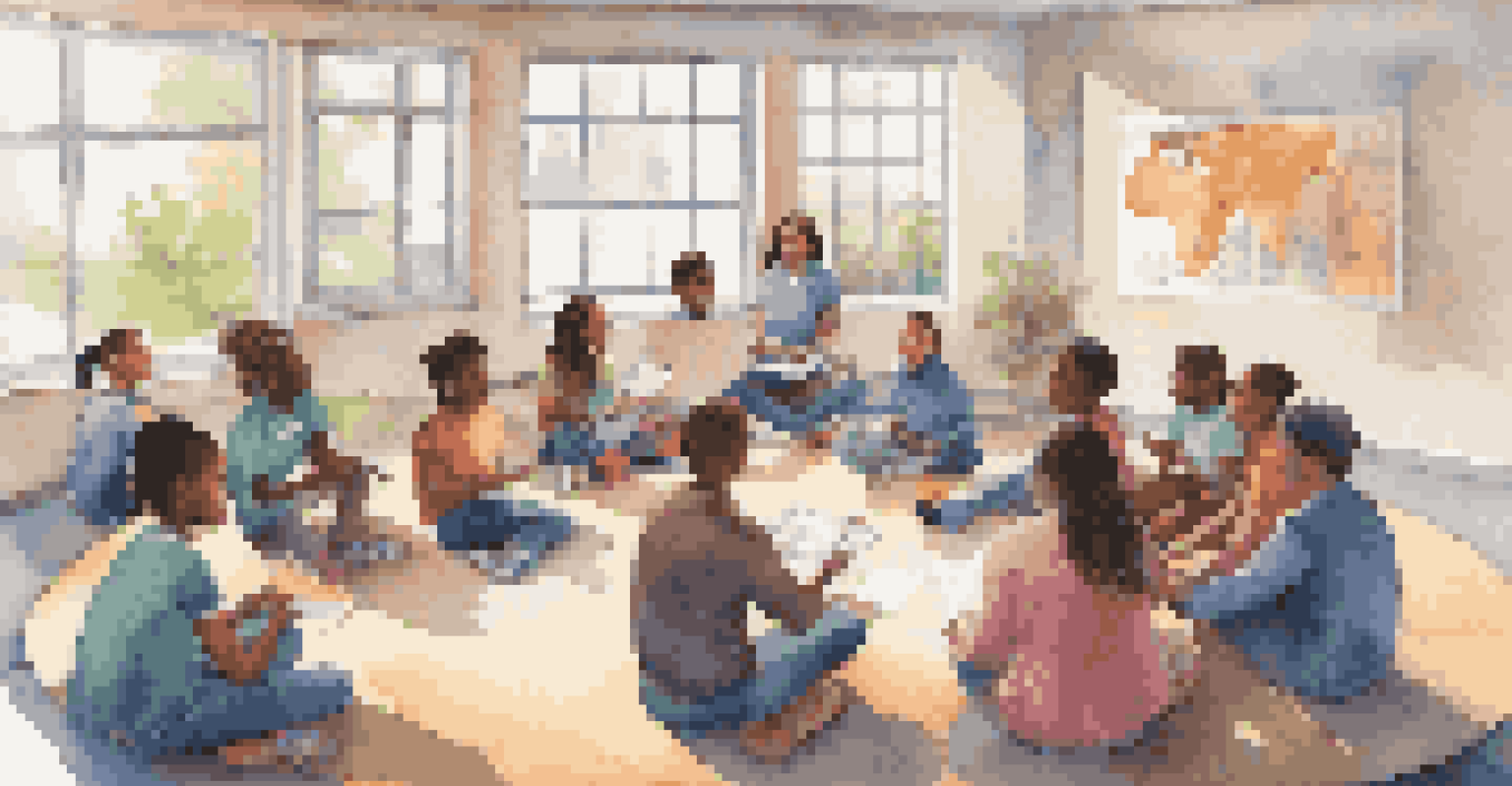How to Use Reflection as a Tool for Life-long Learning

Understanding Reflection in Learning Contexts
Reflection is the process of thinking deeply about experiences, allowing us to derive valuable insights. It's like taking a pause in a fast-paced race, where you can survey the track ahead and adjust your strategy. By incorporating reflection into your learning, you can understand what worked, what didn't, and why.
We do not learn from experience... we learn from reflecting on experience.
This practice is not just for students or professionals; it’s a lifelong tool that everyone can use to foster personal growth. Imagine reflecting on your interactions, decisions, or even challenges faced during the day. Each moment becomes a lesson that contributes to a bigger picture of self-improvement.
Ultimately, reflection helps bridge the gap between knowledge and understanding. It’s the difference between knowing how to ride a bike and truly understanding the balance required to keep going. Embracing this tool can transform your approach to learning and personal development.
Creating a Reflection Routine
Establishing a regular routine for reflection can significantly enhance your learning process. Just like athletes have training schedules, you can carve out time each week to assess your experiences and insights. Consistency is key—find a method that works for you, whether it’s journaling, meditating, or simply taking a quiet moment to think.

Consider setting aside a specific time, such as Sunday evenings, to review the week’s events. During this time, ask yourself questions like, 'What did I learn this week?' or 'How did I handle challenges?' This structured approach allows you to track your progress and identify areas for improvement.
Reflection Enhances Learning
Engaging in reflection allows individuals to derive valuable insights from their experiences, fostering personal growth and understanding.
Over time, this routine can lead to profound changes in your mindset. You might find that reflecting regularly not only enhances your learning but also boosts your confidence in making decisions. It's like sharpening a tool; the more you practice, the more effective you become.
Using Questions to Guide Reflection
Questions are powerful tools in the reflection process. They can help unlock deeper insights and encourage critical thinking about your experiences. For instance, instead of asking, 'What did I do today?' you might ask, 'What challenges did I face today, and how did I respond?' This subtle shift can lead to more meaningful reflections.
Mistakes should be examined, learned from, and discarded; not dwelled upon and stored.
Try to frame your questions in a way that prompts exploration rather than simple answers. Questions like, 'What could I have done differently?' or 'What strengths did I rely on?' help you dive deeper into your experiences. By evaluating your actions and decisions, you can discover patterns that influence your future behavior.
Moreover, don’t hesitate to revisit these questions over time. They can evolve as you grow, providing fresh perspectives on familiar situations. Like a compass guiding a traveler, these questions keep you oriented on your path of lifelong learning.
The Role of Feedback in Reflection
Feedback is an essential component of effective reflection. Whether from peers, mentors, or even self-assessment, it enriches your understanding of your actions and decisions. Consider feedback as the mirror that helps you see your blind spots—areas you might overlook on your own.
Incorporating feedback into your reflective practice can provide new angles to your experiences. After a presentation, for instance, asking colleagues for their thoughts can help you identify strengths and areas for improvement. This type of reflection fosters continuous growth and encourages adaptability.
Routine Boosts Reflective Practice
Establishing a consistent reflection routine can significantly improve your learning process and mindset.
Remember, feedback is not always easy to hear, but it is invaluable for development. Embrace it as a gift that can sharpen your skills and enhance your learning journey. The more open you are to receiving feedback, the more effective your reflective practice will become.
Embracing Mistakes as Learning Opportunities
Mistakes are often viewed negatively, but they are actually powerful learning opportunities. Reflecting on errors can lead to greater understanding and growth. Instead of shying away from your mistakes, approach them with curiosity: 'What can this teach me?'
When you acknowledge and analyze your mistakes, you break down the barriers that fear of failure creates. Imagine a child learning to walk—each stumble is a chance to learn about balance and coordination. In much the same way, your missteps can guide you toward better choices in the future.
By embracing mistakes, you cultivate resilience and a growth mindset. This shift in perspective allows you to see challenges as part of the learning process rather than obstacles. Ultimately, this approach leads to richer experiences and a more fulfilling journey in life-long learning.
Journaling: A Powerful Reflection Tool
Journaling is one of the best ways to facilitate reflection and track your learning journey. Writing down your thoughts can help clarify ideas and emotions, making it easier to process experiences. Just like a gardener tends to plants, journaling nurtures your thoughts and insights, allowing them to flourish.
Consider setting aside a few moments each day or week to jot down reflections about your experiences. You might describe a challenge you faced, how you handled it, and what you learned. This practice not only enhances your self-awareness but also creates a resource you can revisit for future insights.
Embrace Mistakes for Growth
Viewing mistakes as learning opportunities cultivates resilience and enhances the journey of lifelong learning.
Over time, your journal becomes a treasure trove of knowledge and growth. It serves as a reminder of your progress and the lessons learned along the way. Plus, it can be incredibly rewarding to look back and see how far you’ve come, reinforcing the value of reflection in your life-long learning journey.
Integrating Reflection into Daily Life
Integrating reflection into your daily routine can transform your approach to life and learning. It doesn’t have to be a lengthy process; even a few moments of contemplation can make a significant impact. Start small by incorporating reflection into activities you already do, like your commute or before bed.
For example, during your commute, you might think about the most significant thing you learned that day or how you felt during a challenging moment. These brief reflections can create space for insights to emerge, turning everyday experiences into valuable lessons.

By making reflection a daily habit, you create a richer, more intentional life. It encourages mindfulness and helps you stay present, leading to better decision-making and personal growth. Over time, you'll find that these small moments accumulate, resulting in a profound shift in your learning journey.